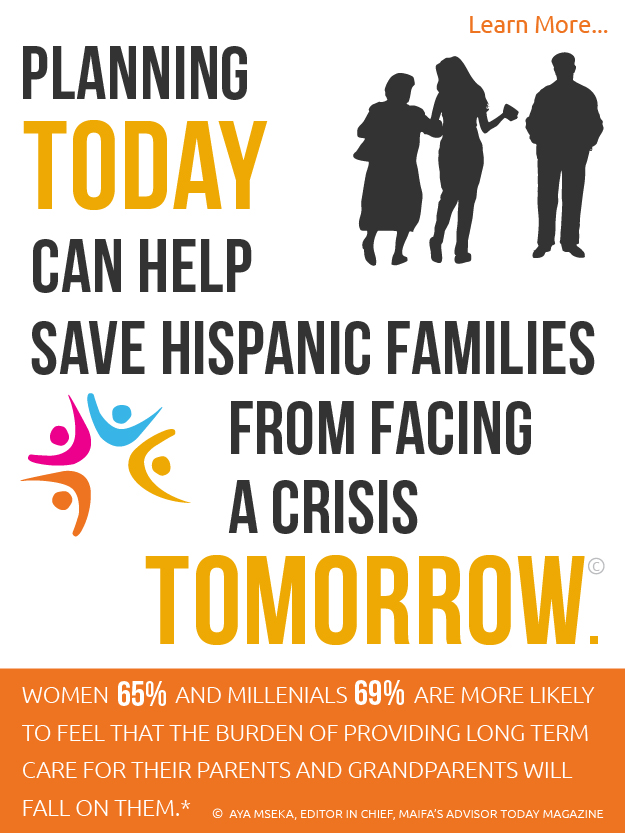
How to Find a Therapist and More Tips for Latinos Starting Their Mental Health Journey
03/11/2022 06:00AM | 2512 viewsEvery time I mentioned my anxiety or fears at home, most of my family dismissed my feelings. The judgment and criticism I’ve received isn’t uncommon within the Latinx community. Even when I openly talk about seeing a therapist, I’m met with misguided comments. While stigma surrounding therapy still exists, it’s more openly discussed than in the past. And even TV shows – in particular My Crazy Ex-Girlfriend – have portrayed mental health in nuanced ways. But therapy is still misunderstood, and within the Latino community it’s (not unfairly) seen as a something that is intangible, a luxury not afforded to those struggling financially. This means many feel shut out of therapy, which is especially concerning for our community. As nonprofit Mental Health America reports, “ 36 percent of Hispanics with depression received care, versus 60 percent of whites .”
Taking ownership of my mental health has made a huge difference, but it’s also been an incredibly rocky process. I made the decision to find a therapist two years ago when I felt very lost. But I had no guidance, no way to figure out how to find a therapist, no idea how to wrap my head around the logistics with my insurance, and no answers about what steps I should take next. If you’re just embarking on your mental health journey, it’s a scary and stressful time. But in hopes to make you feel less alone, I interviewed a Latina mental health activist, a woman who knows how intimidating the process can be, and a queer Latino therapist who have tips on how to get started. Below, check out a six-step guide that will help you start your own journey.
1. How to Find a Therapist
For me finding a therapist took a simple Google search. But there are many other ways to find a mental health professional. New York-based Latino therapist Omar Torres has several recommendations.
- Word of Mouth: “If you feel comfortable enough, ask around and talk to people that you know and trust about their experiences, and ask them if there’s anyone they can recommend. You’re getting a referral from someone you trust and respect and so someone is vouching for you, if it’s someone. If your friend likes their therapist, chances are you’ll get along with them if your friend does as well,” Torres says.
- Use the internet: “Sites like PsychologyToday, which is a site with a list of therapists all throughout the country. What’s good about this avenue is that you can limit your searches based on where you live/work, check out their profiles, their specialties, and you’re going to have to do some cold calls. Ask about their experience, your own goals, and what’s nice is that speaking on the phone, you can figure out if that person might be a good fit for you.”
- Go through your insurance: “Third is to go through your insurance provider if you have one. If your insurance covers mental health, you can go through your provider, just say that you’re looking for a therapist in network. And they can give you a list of therapists and you know you’re covered, so you don’t have to worry about pricing as much.
In 2018, Brandie Carlos started Latinx for Therapy, a resource she modeled after Therapy for Black Girls. Through the site, she’s built a database of therapists who “are licensed, culturally conscious of the Latinx community, and provide quality service to their patients.” Carlos still encourages everyone do their homework, but wants the directory to serve as a starting point. Check it out here and Therapy for Black Girl’s impressive database here.
2. Figure Out What’s Right for You
After you’ve done research, you still may not know how to make the right decision. Mental health activist Dior Vargas suggests looking for someone with shared experiences. “It’s important to do a lot of research and educate yourself about what it’s about and it’s hard,” she says. “Because you’re looking for qualifications, languages, what communities they inhabit. Learn as much as you can so that you can go in there informed and make informed decisions and know it’s something that is going to be an ongoing process. It’s an investment in self care.”
Creator of The Kat Call, Kat Lazo reached out to Dior for advice because she wanted a therapist that was not only a woman, but a woman of color she could connect with. Explaining a side of yourself or breaking something down something to a therapist who can empathize but not fully relate can leave you feeling frustrated. Kat felt scared to reach out to a therapist and avoided calling at first. But when she did, she found it a great experience. “She put me at ease and asked general questions and was straightforward,” she says. To her, finding a therapy is a lot like dating: You learn different things and approach each one differently. That’s why with her second therapist she was direct about what she wanted to see in a way she wasn’t with her first.
Omar Torres compares finding the right therapist to shopping for jeans. “Every story you go to, the pants won’t fit the same way and you have to go to every store to figure out what fits you,” he says. “And if it’s a bad fit, there’s nothing wrong with that, it’s just simply that, a bad fit.” And if you do have to break up with a therapist, Omar reassures that “the therapist is going to be fine.” It’s not the end of the world, as they’ve likely already experienced this. It’s important that both the therapy and sessions work for you.
3. How to Deal with Family and Loved Ones
In our community, the stigma we face from loved ones can be hard to overcome. Kat had to guide her family, especially her father who is very anti-therapy, through this process.
“It’s important to give an overview,” Dior says. “Don’t dumb it down, but make it as simple as possible and ease people into the conversation about it. Make it relatable to their experiences, and make it as interactive as possible. Here you share their experiences, so that they can feel like it can help them as well. It should be very reciprocal and simple.”
When you decide to have that conversation with your family, Omar suggests to go at your own pace. “Nobody needs to know what you’re doing and that information is yours to share when and if you want. No one has to know until you’re good and ready and you can keep this information to yourself. Telling people you’re in therapy is privileged information when you’re comfortable and ready,” he says.
Once you’re ready to have that conversation with loved ones, Omar says you can employ a simple analogy. “You can say that you go in for maintenance just like a car,” he says. “You go in regularly to make sure the engine doesn’t fail. Just like your physical. I don’t get a physical because I have a cold, I go to check in, it’s all about maintenance, it’s not supposed to be about a specific crisis you’re in. Seeing a professional and support from someone who’s unbiased and getting perspective from their point of view is helpful.”
4. What To Expect
After taking all these steps, you may still feel uneasy about what to expect. In my first session, my therapist asked, “So what are you looking to get out of this?” I was dumbfounded. “It’s important to figure out why you think you need it,” Dior says. “It’s important to know what you’re working for in your back pocket.”
Omar wants people to think about therapy as you investing in yourself. “You’re worth investing in yourself, and that’s what therapy is,” he says. “What I tell people is that this is a collaborative thing, so I encourage people to walk in with any questions they want to ask. If it’s your first time, talk about your anxiety, what you hope to see improved, change. What I asked clients during the first session is, ‘What is that you would like to see on your average day six months from now that would have you tell yourself that therapy is working for you?'”
5. Know That It's a Process
Does therapy actually work, though? Personally, therapy allows me the chance to have an objective sounding board and make sure that my emotions and actions are in check. When I ask Kat the same question, she says, “Some days it did and some days it didn’t. It’s a process and those things aren’t invisible, they’re internal.” Dior similarly explains that “there are degrees of better. Because better doesn’t mean cured necessarily.” Sometimes you’ll be able to get something off your chest, which will make you feel like there’s been a weight lifted off of you. But expect lots of ups and downs during your mental health journey.
6. What You Should Keep in Mind
Navigating this world isn’t easy, and you’ll likely face plenty of setbacks and disappointment along the way. But keeping a few things in mind will make the process easier. Kat says to remember that “it’s not easy finding a therapist, and I don’t want to romanticize what it’s like finding a therapist. Figure out why you’re going to therapy and what you want to get out of it?”
Omar says it’s important to know that not all therapy sessions are the same. “Therapy doesn’t have to be super serious all the time. You don’t have to show up and bawl your eyes out every single session. You’re getting to know someone brand new in therapy, so let them get to know you. Every week doesn’t have to be so heavy; you don’t have to have a breakthrough every session. Don’t take it so seriously.”











Post your Comment
Please login or sign up to comment
Comments